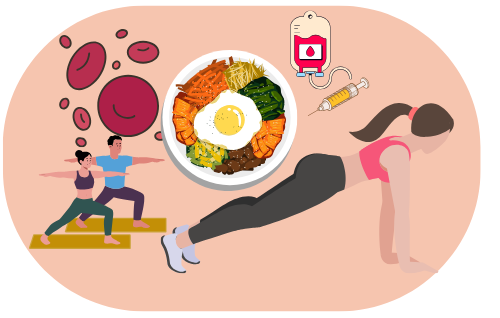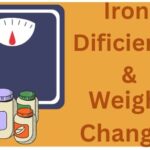Most of us think of anemia as just fatigue and weakness, but there’s more to the story. Anemia affects the way your body processes energy, and this means it has a direct impact on metabolism. Understanding the relationship between anemia and metabolism is crucial if you’ve ever wondered why your body feels slower, why you’re struggling with weight changes, or why your workouts don’t feel the same.
How Anemia Impacts Energy and Oxygen
Your metabolism is like an engine that powers every process in your body. To work efficiently, it needs fuel (food) and oxygen. Oxygen is delivered to tissues through red blood cells.
- When you’re anemic, your red blood cells can’t carry enough oxygen.
- This creates a state of low oxygen availability (hypoxia).
- Cells slow down energy production, leading to fatigue, slower calorie burn, and reduced endurance.
The Science of Anemia and Metabolism
The Role of Iron in Metabolic Function
Iron isn’t just about red blood cells—it’s also a key component of enzymes that fuel your cells. Without enough iron:
- Mitochondria (your cells’ “powerhouses”) can’t produce energy efficiently.
- Muscle performance decreases, lowering physical activity.
- Your basal metabolic rate (the calories you burn at rest) may decline.
Hormonal Shifts
Anemia can affect hormones that regulate metabolism. For example:
- Thyroid hormones may fluctuate with iron deficiency.
- Leptin and ghrelin, which control hunger and fullness, may be disrupted by poor sleep and low energy.
Can a Slow Metabolism Cause Weight Changes?
A slowed metabolism doesn’t guarantee weight gain, but it makes balance harder.
- Weight gain: Lower activity + slower calorie burn.
- Weight loss: Some people eat less due to poor appetite or nausea.
- Weight fluctuation: Energy levels, diet changes, and stress can push weight in either direction.
Real-Life Example
Imagine Sarah, a 32-year-old professional. She noticed she was tired all the time, skipped her workouts, and craved high-sugar foods. Within a few months, she gained 10 pounds. Blood tests revealed iron-deficiency anemia. Once she corrected her iron levels, her energy returned, and she was able to exercise and manage her weight again.
How to Improve Metabolism With Anemia
1. Eat Iron-Rich Foods
- Lean meats (beef, turkey, chicken)
- Leafy greens (spinach, kale, collards)
- Legumes (lentils, chickpeas, beans)
- Fortified cereals
Pair with vitamin C (oranges, bell peppers) to increase absorption.
👉 See our guide on iron-rich foods for better health.
2. Manage Supplements Wisely
Iron supplements are common, but they may cause constipation or bloating. Take them with water, not coffee or tea, which can block absorption.
👉 Read Mayo Clinic’s guide to iron supplements.
3. Stay Active
Even light activity boosts circulation and energy. Walking, swimming, or yoga can help keep metabolism moving while respecting your energy levels.
4. Prioritise Rest
Quality sleep helps regulate appetite hormones and supports recovery. Aim for 7–9 hours of consistent rest.
5. Manage Stress
Stress hormones can worsen anemia symptoms and slow metabolism. Try deep breathing, meditation, or short mindfulness breaks.
FAQs About Anemia and Metabolism
Does anemia always slow metabolism?
Yes, because oxygen is essential for cellular energy. But the degree of slowdown varies depending on severity.
Can treating anemia boost metabolism?
Yes. Many people notice improved energy, better workouts, and more stable weight once anemia is corrected.
Does metabolism return to normal after anemia treatment?
In most cases, yes—especially if diet and lifestyle support recovery.
Key Takeaways
- Anemia reduces oxygen delivery, slowing metabolism.
- Fatigue and hormonal changes may indirectly affect weight.
- Both weight gain and weight loss are possible, depending on how anemia affects your lifestyle.
- The best strategy: treat anemia at its source, nourish your body, and support your metabolism with healthy habits.

The link between anemia and metabolism shows us that blood health affects more than energy—it influences how your entire body functions. If you’ve been feeling sluggish, struggling with weight changes, or unable to keep up with daily activities, it may be time to check your iron levels. With the right treatment and lifestyle adjustments, you can restore balance, boost your metabolism, and feel more like yourself again.
For more diet guidance, see our article on iron-rich foods and healthy diets.
Learn more from Healthline’s guide to iron and metabolism.







